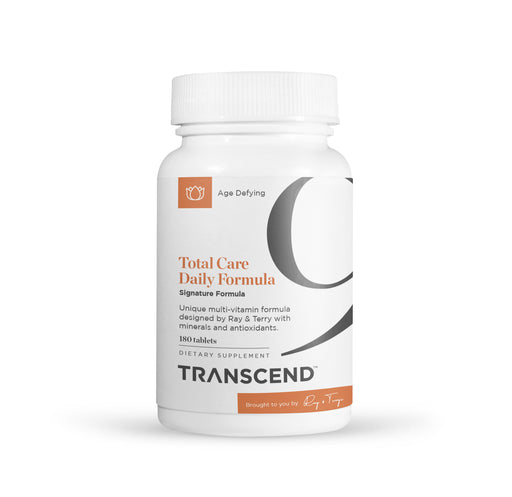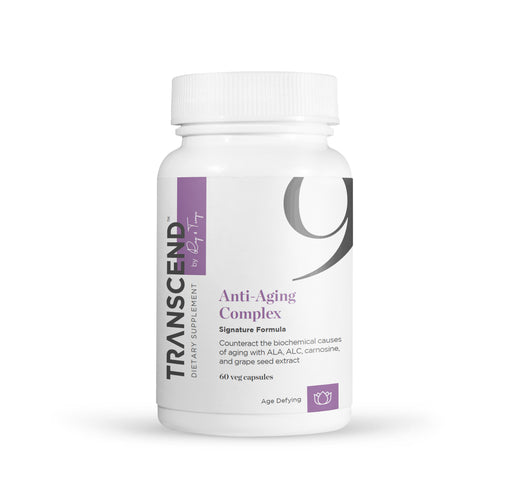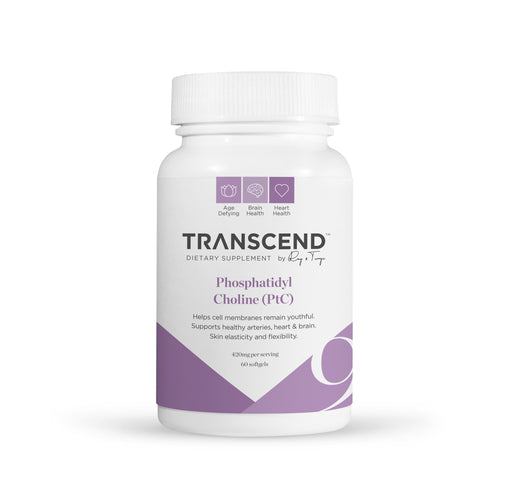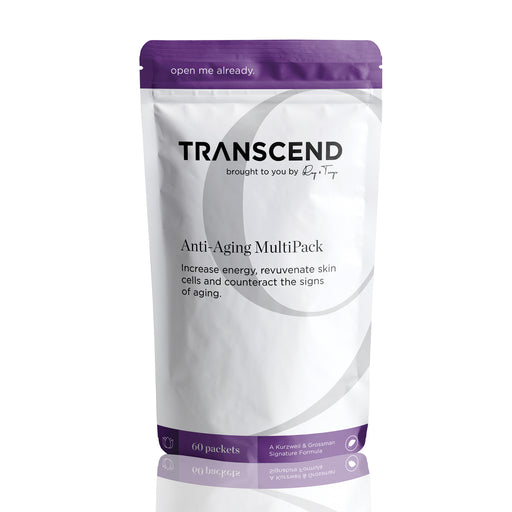
Total Care Daily Formula
A Kurzweil + Grossman Formula Optimal vitamin/mineral foundation Includes three powerful antioxidants Supports overall health and wellness Unique ...
View full details
According to the Centers for Disease Control and Prevention, our social connections carry more weight in determining our health than genetics, behaviors, and medicine combined. Surprised? Imagine the impact of prioritizing your social life as you do your diet, exercise, sleep, and medical care. Research shows that people who have more positive relationships live longer than others. And it doesn’t matter what kind of relationships – family, friends, neighbors, romantic partners, or others – all social connections significantly influence our biology and well-being. July is Social Wellness Month which provides the perfect opportunity to shine a spotlight on this often overlooked health factor. It is also a great reminder to step away from your screen and connect with the people around you.
Julianne Holt-Lunstad, a professor of psychology and neuroscience and Director of Brigham Young University’s Social Connections and Health Research Lab, conducted a meta study of all studies that measured aspects of their participant’s social relationships, including the size of their social network, social participation, and social supports. These studies had been conducted over years, sometimes decades, and involved millions of participants. Her findings were clear – people with more social connections were 50% more likely to be alive when the researchers followed up. Those who were isolated, lonely, and alone were significantly more at risk of early death. She compared her findings to other factors that influence mortality including air pollution, obesity, and smoking and she found that social integration – how much you interact with people as you move through your day – was the leading factor in longevity. The second most important factor was the number of close relationships the person had. According to Holt-Lunstad, increased social connections is associated with lower depression, slower age-related cognitive decline, greater happiness, and greater satisfaction in life. She closed her TedTalk with this advice:
“Nurture relationships now. Be a friend in order to have friends. Put yourself out there, show up, and be a part of your community. Don’t wait. It’s time to prioritize our relationships like our life depends on it. Because it does.” -- Julianne Holt-Lunstad
Susan Pinker, a developmental psychologist and award-winning author, who also studies the impact of social connection on health, traveled to Sardinia, an Italian island in the Mediterranean, where there are ten times as many centenarians as in North America. She found that as people aged on the island, they were surrounded by family, friends, neighbors, clergy, shopkeepers, and others from the community. They weren’t left to live solitary lives as they aged; they had an abundance of daily face to face interactions. In her TED Talk, Pinker explained that face to face interactions release neurotransmitters that help your health now and into the future. Eye contact, handshakes, and high fives release oxytocin, lower cortisol levels (stress), and generate dopamine which gives us a little high. She says our voices and body language convey a rich experience, more than digital communications. According to Pinker, one major reason women live longer than men is that women are more likely to prioritize and groom their face to face relationships over their lifespans. Based on her findings, she urges us as individuals, employers, and policy makers to build social interactions into our work, agendas, cities, and all systems. If we don’t, we put our health at risk.
In TRANSCEND: Nine Steps To Living Well Forever, Ray and Terry write:
“Close interpersonal relationships provide substantial protection against the negative effects of stress. Human evolution is familial and tribal. Social connection nurtures us with love, intimacy, support, and meaning, whereas isolation fosters anxiety, depression, and illness. Make sure there are people in your life with whom you can talk openly and without embarrassment about your dreams, doubts, hopes, and fears. This intimate sharing with someone you trust and who cares about you can lead to some of the most profound and meaningful times of your life. It is also a powerful stress reliever, as the simple act of articulating your thoughts and feelings can often bring new clarity to what may have been causing you stress. Close relationships require cultivation, whether with your spouse or partner, members of your family, or friends and colleagues. And if you don’t have anyone you feel you can really talk with, then seek out a mental health professional, a teacher, a member of the clergy, or a social worker. Just don’t bottle up what’s on your mind and in your heart.” (p 178-179)
The National Institutes of Health created a Social Wellness Toolkit that includes this simple list of ideas for finding new social connections:
-Join a group focused on a favorite hobby, such as reading, hiking, painting, or wood carving.
-Learn something new. Take a cooking, writing, art, music, or computer class.
-Take a class in yoga, tai chi, or another new physical activity.
-Join a choral group, theater troupe, band, or orchestra.
-Help with gardening at a community garden or park.
-Volunteer at a school, library, hospital, or place of worship.
-Participate in neighborhood events, like a park clean-up through your local recreation center or community association.
-Get active in your community. Helping others can reduce feelings of loneliness
-Travel to different places and meet new people.
If you are feeling anxious, depressed, or cut off from your community, these things are easier said than done. However, even small actions can make a difference, like taking a walk and saying hello to a passerby, going to your local coffeeshop and chatting with the staff, and simply looking into programs offered by your local Parks and Recreation department. You don’t have to leap into the middle of a theatrical production or hike a mountain with the American Alpine Club (unless you want to!). You might prefer to start small, especially after being socially distant for so long during the pandemic. Make a list of activities that bring you joy, ranging from the smallest to the biggest. Post it on your fridge and the next time you’re feel bored or lonely, pick an activity that feels doable in that moment. Striving for a long and healthy life never ends. When we reach our health goals we can’t say, “I’ve done it, I’m healthy for life!” Social connections, just like diet, exercise, and doctor’s visits, require ongoing attention. So, as you make your usual plans for dinner, exercise, or medical care, don’t forget to also make plans to connect with the people around you. Those connections will not only bring you joy, they will help you live a longer and healthier life.

A Kurzweil + Grossman Formula Optimal vitamin/mineral foundation Includes three powerful antioxidants Supports overall health and wellness Unique ...
View full details
A Kurzweil + Grossman Formula Antioxidant and anti-aging protection Increase energy Fight aging Decrease wrinkles Cellular integrity Anti-Aging...
View full details
Improve skin elasticity Cell membrane flexibility Support memory function Healthy brain tissues Phosphatidylcholine (PtC) is a flexible phospho...
View full details
A Kurzweil + Grossman Formula Continued Synergy between Science and Convenience Convenient dosage packets Top anti-aging products Increase energy...
View full details